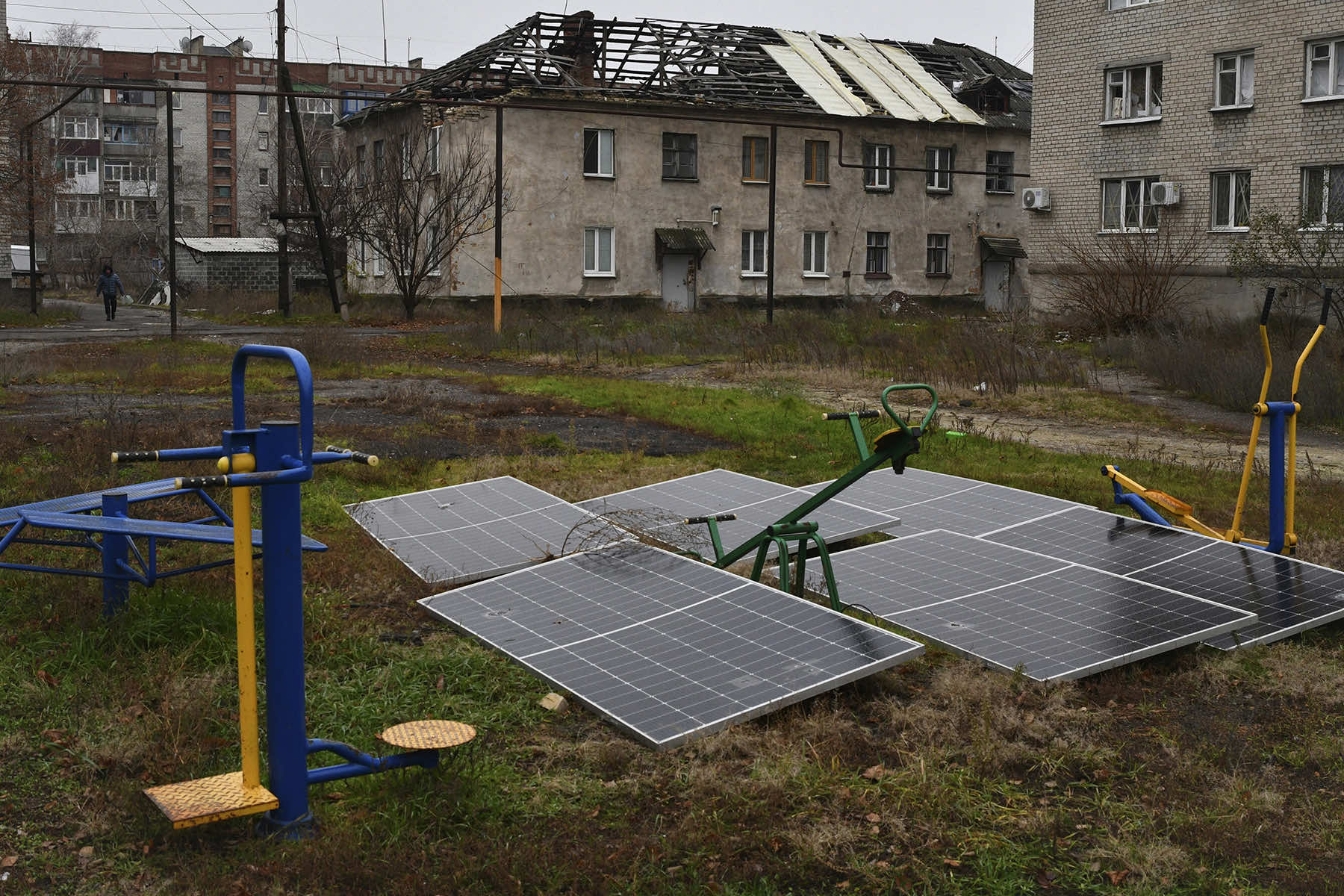Attacks on two DTEK solar farms last spring is a good example. They destroyed many solar panels and some of the transformers, which step up voltage for long distances or step it down for use in homes. Replacing the transformers and swapping out destroyed panels allowed the farms, which generate 400 megawatts, to be back up in seven days.
Timchenko said an attack on a thermal generating station, which experienced a similar amount of damage, took three to four months to rebuild.



But how come the experts are saying differently?
Which “experts” do you need for what’s common knowledge?
If you took a second to read you’d find their usefulness isn’t withstanding attack, but being able to quickly deploy after an attack.
You’re acting as if there’s some magical form of energy generation that is impervious to modern munitions.
I’ll write it again then: of what use is rebuilding a small scale insular install if your grid is down, and can’t get up because your power plants and high voltage transformers are toast? You industry can’t operate, that’s the whole point of this exercise. The residents and small businesses can survive on small generators, and they do.
Before engaging sarcasm try finding out whether the tree you’re barking up is in the right forest.
You just don’t understand how the grid works especially with decentralized power.
The grid doesn’t work with pure renewable without month-scale storage. Decentralized has nothing to do with it. Most industrial production processes require 24/7/365 power availability. For obvious reasons not many such are still in operation there, despite aggressive load shedding.
If experts disagree with your “common knowledge”, it’s probably actually a “common misconception” which, given the sheer complexity of information in our world, is a fairly common phenomenon. There’s no shame in being wrong about things you’re no expert in, just in doubling down on your error.
(Of course, if you’re an expert too and have evidence to the contrary, it becomes effectively impossible for laypeople to assess without knowing the history current state of discussion in the field.)
Who told you these people mentioned in an article are experts? Argument from authority isn’t, doubly so from imagined authority. Most about activities going on in the Ukraine and those supporting them are grift. Make sure to double-check what these experts are trying to sell you.
I was contesting the general logic of this sentiment:
I took this to mean “If common knowledge suggests an obvious understanding, an expert’s assessment is can add no value, as they would either agree or be wrong.” Put differently: “If it seems obviously true to me, it must be true in general.”
TL;DR: If you think you know more than experts on a given topic, you’re most likely wrong.
On a fundamental level, this claim in general holds no water. Experts in a given field are usually aware of the “common knowledge”. They also usually have special knowledge, which is what makes them experts. If they claim things that contradict “common knowledge”, it’s more likely that their special knowledge includes additional considerations a layperson wouldn’t be aware of.
Appeal to Authority as a fallacy applies if the person in question isn’t actually an authority on the subject just because they’re prominent or versed in some other context, but it doesn’t work as universal refutation of “experts say”.
For this specific case, I’m inclined to assume there is some nuance I might not know about. Obvious to me seems that large, central power plants are both easier targets and more vulnerable to total disruption if a part of their machinery is damaged. On the other hand, a distributed grid of solar panels may be more resilient, as the rest can continue to function even if some are destroyed, in addition to being harder to spot, making efforts to disrupt power supply far more expensive in terms of resources.
However, I’m not qualified to assess the expertise of the people in question, let alone make an accurate assessment myself. Maybe you’re right, they’re grifters telling bullshit. But I’d be wary of assuming so just because it seems true.
Attacks on centralized hydro and coal power plants are effective, but expensive since requiring several large ballistic rockets with 300-500 kg high explosive payloads.
In contrast to that you can take out a large PV module field for about 30 k$ with a mass produced item like a Geran-2 with a cluster munitions payload. This can’t be cost-effectively protected against, so rebuilding the plant doesn’t help. Attacks taking out vulnerable centralized parts like speciality high voltage transformers which are difficult to source are synergistic, since causing grid partitioning events and potential cascading failures due to overload.